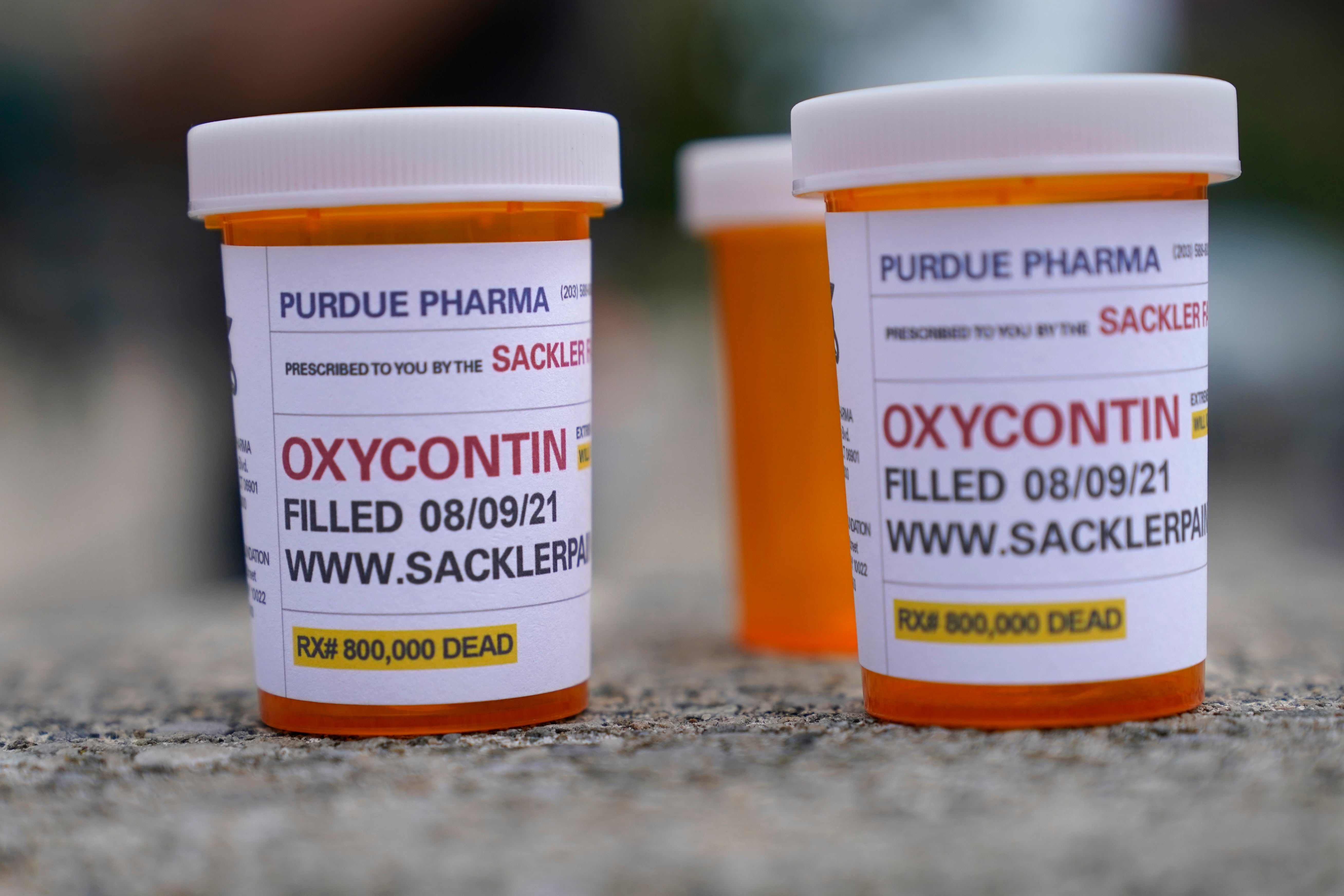OxyContin maker's lawyer warns of long, expensive litigation
A lawyer for Purdue Pharma says the company's settlement plan is the only way to avoid long and expensive litigation

Your support helps us to tell the story
From reproductive rights to climate change to Big Tech, The Independent is on the ground when the story is developing. Whether it's investigating the financials of Elon Musk's pro-Trump PAC or producing our latest documentary, 'The A Word', which shines a light on the American women fighting for reproductive rights, we know how important it is to parse out the facts from the messaging.
At such a critical moment in US history, we need reporters on the ground. Your donation allows us to keep sending journalists to speak to both sides of the story.
The Independent is trusted by Americans across the entire political spectrum. And unlike many other quality news outlets, we choose not to lock Americans out of our reporting and analysis with paywalls. We believe quality journalism should be available to everyone, paid for by those who can afford it.
Your support makes all the difference.A lawyer for Purdue Pharma said Monday that a judge needs to accept the OxyContin maker's plan to settle thousands of lawsuits over the opioid epidemic or face “years or decades of Hobbesian hell” with complicated litigation that would not result in fair payouts to abate the epidemic or pay individual victims.
Marshall Huebner, a lawyer for Purdue, made his case during an ongoing videoconference hearing to U.S. Bankruptcy Judge Robert Drain, who expects to rule this week on whether to accept the Stamford, Connecticut-based company's reorganization plan.
State and local governments and individual victims who cast ballots on the plan supported it overwhelmingly. But nine states, the District of Columbia the city of Seattle and the U.S. Bankruptcy Trustee are fighting the plan because it would protect members of the Sackler family who own the company from future lawsuits over opioids.
Huebner said that allowing suits to go ahead against members of the wealthy family "would be a fight that would be long, hard-fought, uncertain and incredibly expensive.”
And if some places won billions in judgments against family members, Huebner said, that could leave nothing for the rest of the U.S.
He also noted that suing Sackler families is complicated. The family is stretched across the world, with some assets held in foreign trusts. And many family members have never been involved with Purdue.
In exchange for the legal protections, family members would contribute a total of $4.5 billion in cash and control of a charitable fund. They would give up ownership of Purdue, and the company would be reformed into a new entity with its profits going to fight the epidemic and pay victims and their families. Most of those with claims that are found valid are expected to receive between $3,500 and $48,000.
The company would also make public millions of internal documents, including communications with its lawyers. And the Sacklers would have to get out of the opioid business in other countries eventually.
Some parties in the cases also agreed Monday to changes in the details of the settlement.
While members of the Sackler would still be protected from lawsuits related to opioids, they would be allowed to face litigation over other Purdue products and actions. Also, contractors and advisers would no longer receive protections from certain civil claims over opioids, which have been linked to more than 500,000 deaths in the U.S. since 2000.
After testimony wrapped up last week in the confirmation hearing, Drain — a veteran bankruptcy judge based in White Plains, New York — said it's the most complex case he has ever presided over. Before abruptly ending testimony as he appeared to cry, he said wasn't going to forget a different kind of voice in the case: that of victims.
He mentioned the letters he has received from some of them.
One, Stephanie Lubinski, said described how her husband Troy a former Minneapolis firefighter, dealt with years of addiction before killing himself in 2020. She said it began when he was prescribed OxyContin for a back injury. “That was the beginning of the end for Troy,” she wrote.
“I am just a small fish in this ocean of devastation the Sackler family has caused with their greed," she wrote. “They increased their opulent wealth, beyond anything that a blue collar worker like myself would ever imagine. Yet, my family paid the ultimate price for them to get that wealth.”